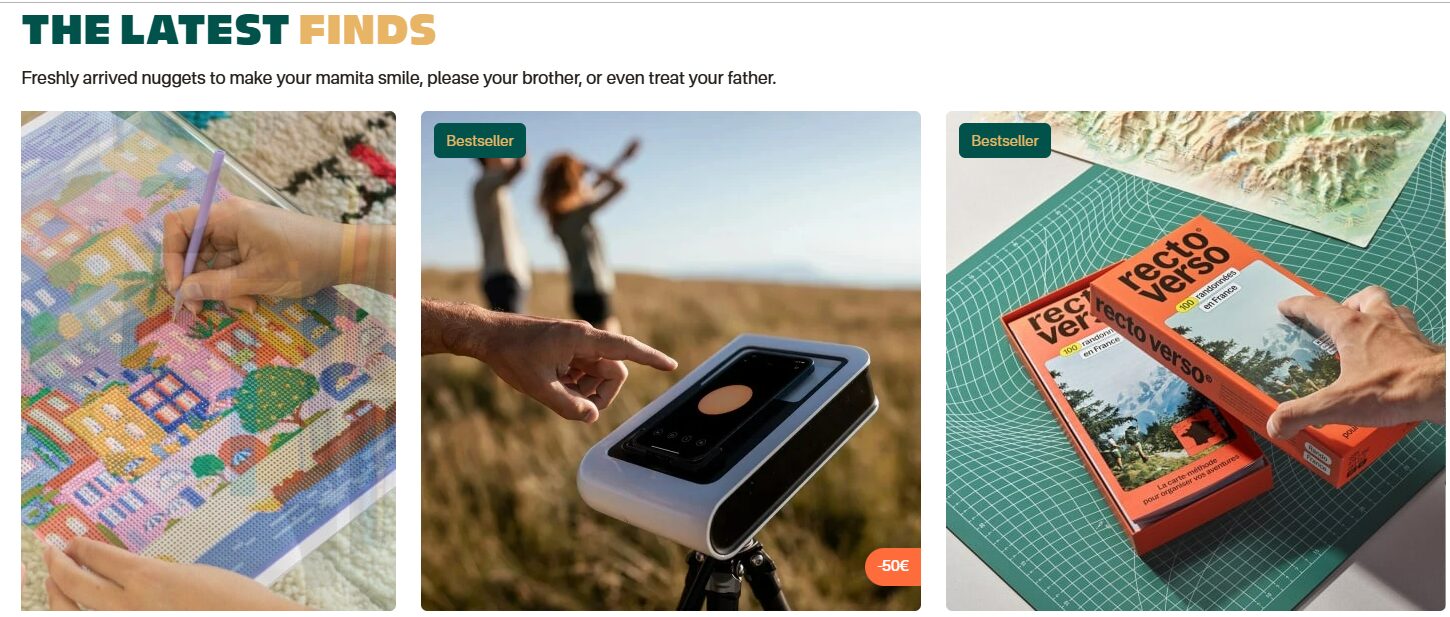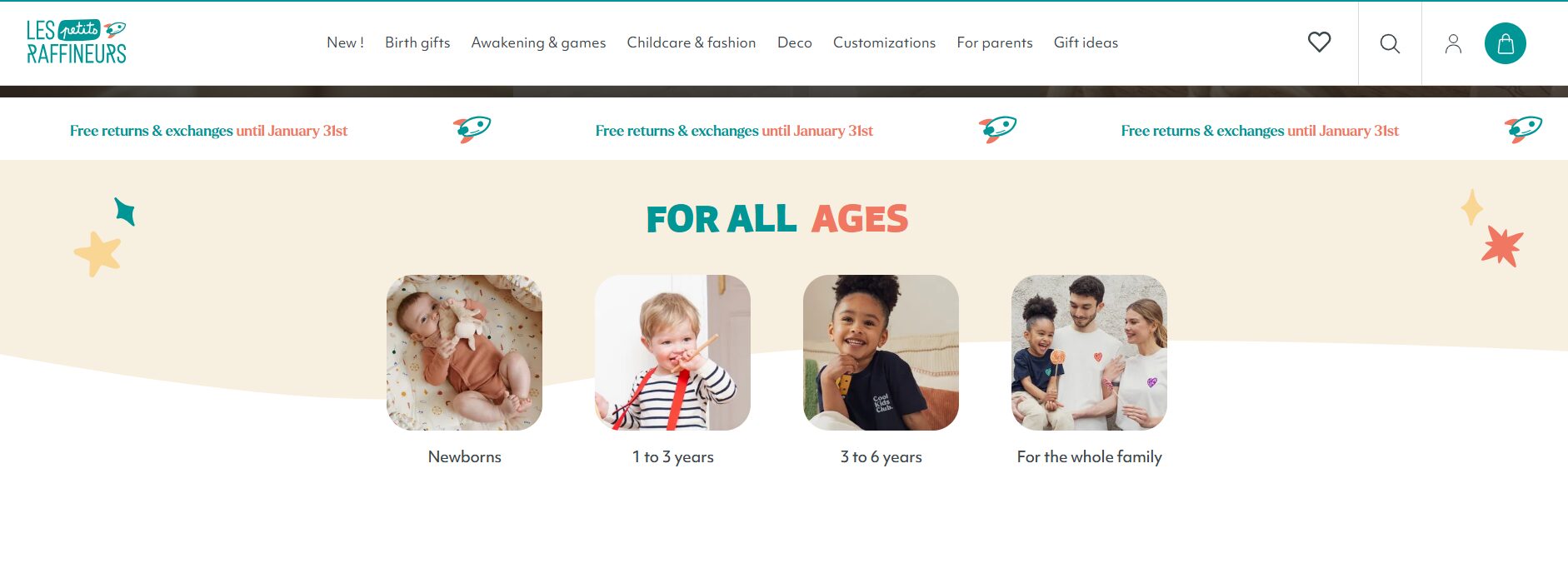Introduction: The Importance of Play and Education for Babies and Children
Play is not just a source of joy for babies and children; it’s a vital part of their development. From the moment they enter the world, little ones are eager to explore, learn, and grow. Engaging with games and educational toys helps ignite their curiosity and fosters essential skills that will serve them well throughout life.
In these formative years, play becomes intertwined with learning, creating an environment where children can experiment without limits. The right toys stimulate imagination while teaching critical thinking, problem-solving, and social skills. Choosing quality games can make all the difference in nurturing young minds as they embark on this exciting journey of discovery. Let’s dive deeper into how you can choose the best options for your little refiners!
Playtime is more than just fun for babies and children; it’s a vital part of their development. In the early years, every game, toy, and interaction shapes their understanding of the world around them. It’s during these moments of exploration that little minds begin to learn, grow, and refine their skills.
Imagine a toddler stacking colorful blocks or a baby rattling a textured toy. Each action sparks curiosity and fosters creativity. Through play, children develop essential cognitive abilities like problem-solving and critical thinking while also enhancing social skills by interacting with peers.
As parents and caregivers, it’s crucial to provide our young ones with toys that not only entertain but educate as well. The right games can ignite passion for learning early on while encouraging imaginative play—a perfect blend for holistic growth that sets the foundation for future success.
Let’s explore some delightful options in games and educational toys designed specifically for our little refiners!
Types of Games and Educational Toys for Different Age Groups
When considering games and educational toys, age appropriateness is crucial. For infants, soft sensory blocks or rattles stimulate touch and sound. These simple toys spark curiosity as babies explore their surroundings.
As toddlers grow, they thrive on interactive play. Shape sorters and stacking rings not only develop fine motor skills but also introduce concepts like color and shape recognition. Imaginative play becomes essential at this stage; dolls or action figures can enhance creativity.
Preschoolers benefit from more structured learning tools. Puzzles challenge their problem-solving abilities while introducing letters and numbers through engaging formats. Art supplies encourage self-expression, nurturing both creativity and cognitive development.
School-aged children require stimulating activities that expand their horizons further. Board games teach strategy and cooperation, while science kits ignite a passion for discovery. Building sets can foster engineering skills along with imaginative thinking as they create unique structures based on their ideas.
When it comes to selecting games and educational toys, age is a key factor. Each stage of development has its unique needs and interests.
For infants, sensory toys are essential. They stimulate sight, sound, and touch. Think colorful rattles or soft blocks that crinkle when squeezed. These toys help develop motor skills while keeping babies engaged.
As toddlers begin to explore their surroundings more actively, interactive toys become vital. Building sets or simple puzzles can enhance problem-solving abilities. Imaginative play with dolls or cars also fosters creativity at this age.
Preschoolers thrive on learning through play too. Educational board games introduce numbers and letters in a fun way. Art supplies encourage self-expression while developing fine motor skills.
For older children, STEM kits spark curiosity about science and technology. Robotics kits allow hands-on experimentation with coding concepts while promoting critical thinking.
Choosing the right toy is not just about entertainment; it’s about nurturing growth at every stage of childhood development. Engaging with thoughtfully designed games can provide countless hours of joy as well as valuable lessons along the way.

Benefits of Playing with Games and Educational Toys
Playing with games and educational toys fosters creativity in children. When kids engage in imaginative play, they explore new ideas and develop problem-solving skills.
These toys also enhance motor skills. Activities like stacking blocks or threading beads help refine hand-eye coordination. Such physical engagement lays the groundwork for future dexterity.
Social interaction is another key benefit. Group games encourage communication and teamwork, teaching valuable lessons about sharing and cooperation.
Cognitive development flourishes through challenges presented by educational toys. Puzzles stimulate critical thinking while counting games introduce basic math concepts early on.
Emotional growth is supported as well; navigating wins and losses teaches resilience. Children learn to cope with frustration, building confidence over time.
Engaging with a variety of toys enriches a child’s learning experience in multiple dimensions, making it an essential aspect of their development journey.
Playing with games and educational toys offers numerous advantages that extend far beyond entertainment. For babies and children, these tools are vital for cognitive development. They stimulate curiosity and encourage problem-solving skills through hands-on experiences.
Social interaction is another significant benefit. When kids play together, they learn to share, communicate, and work as a team. These activities foster essential social skills that will serve them well into adulthood.
Furthermore, engaging with different types of toys can enhance fine motor skills. Manipulating small pieces or building structures helps strengthen hand-eye coordination. This skill set is foundational for later tasks like writing or tying shoelaces.
Emotional growth also plays a key role in the benefits of play. Games often introduce challenges that require patience and resilience to overcome—qualities that build character over time.
Ultimately, investing in quality games and educational toys pays off by nurturing well-rounded individuals ready to face future challenges with confidence.
Factors to Consider When Choosing Games and Educational Toys
Choosing the right games and educational toys for your child involves several key factors. First, consider the child’s age and developmental stage. Toys should match their current skills while also encouraging growth.
Safety is paramount. Check for non-toxic materials, small parts that could pose choking hazards, and durability to withstand rough play.
Think about the educational value of each toy or game. Does it promote problem-solving, creativity, or social interaction? Look for options that engage their minds as well as their hands.
Take into account your child’s interests. A toy related to a favorite theme can ignite enthusiasm and encourage more extended play sessions. Balancing safety, development needs, educational benefits, and personal preferences will help you make informed choices in this important area of childhood development.
Selecting the right games and educational toys is crucial for your child’s development. Start by considering the age appropriateness of each toy or game. A toy meant for older children may pose safety risks or fail to engage younger babies.
Think about your child’s interests. Are they drawn to music, art, science, or physical activities? Choose toys that align with their passions to keep them engaged and eager to learn. Durability matters too; look for high-quality materials that withstand rough play while ensuring safety standards are met.
Another key aspect is versatility—choose toys that grow with your child. Multi-functional items can adapt as skills develop, providing ongoing benefits over time without needing constant replacements.
Consider how a game or toy encourages social interaction. Cooperative play fosters teamwork and communication skills from an early age, making it beneficial not just for individual growth but also for building relationships.
When you take these factors into account, you’ll be well on your way to choosing enriching games and educational toys that support both learning and fun in delightful ways.
Top 5 Games and Educational Toys for Babies and Toddlers
When it comes to babies and toddlers, selecting the right games and educational toys is crucial for their development. Here are five standout options that engage young minds.
First up is a colorful stacking block set. These blocks help develop hand-eye coordination while introducing fundamental concepts like size and balance.
Next, consider interactive musical instruments designed for little hands. They spark creativity and enhance auditory skills through rhythm and sound exploration.
A soft fabric book filled with textures offers sensory experiences, encouraging early language skills as caregivers read aloud together.
Then there’s the classic shape sorter toy. It promotes problem-solving abilities as children learn how to fit shapes into corresponding holes.
A plush animal puppet can inspire imaginative play, helping kids express emotions while fostering social interaction during storytelling sessions or pretend playtime.
When it comes to choosing the right games and educational toys for babies and toddlers, there are countless options available. Here are five standout picks that blend fun with learning:
1. **Stacking Blocks**: These colorful blocks help develop fine motor skills while promoting hand-eye coordination. Kids love stacking them high or knocking them down, making playtime both entertaining and educational.
2. **Musical Instruments**: Simple instruments like maracas or xylophones encourage creativity and introduce children to rhythm. They’re perfect for sensory exploration and can even spark an early interest in music.
3. **Shape Sorters**: Shape sorters challenge little ones to recognize different shapes while improving problem-solving skills. This engaging toy fosters cognitive development as they fit pieces into the corresponding holes.
4. **Building Sets**: Large building sets made of soft materials allow toddlers to explore construction without the risk of injury. They promote imaginative play while enhancing spatial awareness and dexterity.
5. **Interactive Storybooks**: Books with flaps, textures, or sounds captivate young minds during reading time. They not only foster a love for literature but also enhance language skills through storytelling.
These games and toys provide endless opportunities for growth through playfulness—helping shape bright futures filled with creativity, curiosity, and joy!

Top 5 Games and Educational Toys for School-Aged Children
For school-aged children, the right toys can spark imagination and enhance learning.
First on the list is a building block set. These versatile pieces help develop spatial awareness and problem-solving skills while encouraging creativity.
Next up, we have board games like “Scrabble” or “Ticket to Ride.” They promote critical thinking and teamwork as kids strategize their way to victory with friends or family.
STEM kits are invaluable too. They engage curious minds in hands-on experiments, making science fun and accessible.
Art supplies also deserve a mention. Crayons, paints, and craft kits allow for self-expression while honing fine motor skills.
Consider interactive storybooks that combine reading with technology. These books make storytelling immersive and enjoyable by incorporating sound effects or animations.
As children grow into school-age, their playtime becomes even more crucial for developing essential skills. Engaging with games and educational toys can enhance learning while providing hours of fun. Here are five standout options that cater to this age group.
1. **LEGO Classic Bricks**: These timeless building blocks stimulate creativity and problem-solving abilities. Children can construct anything from simple structures to complex designs, fostering both imagination and engineering skills.
2. **Osmo Genius Starter Kit**: This interactive game combines physical play with digital learning through an iPad app. Kids engage in activities ranging from spelling to math challenges, making education feel like a game.
3. **Rush Hour Logic Game**: A fantastic way to develop critical thinking! Players must navigate their car out of a traffic jam using logic and strategic planning—perfect for sharpening reasoning skills while having fun.
4. **National Geographic Kids Puzzle Books**: These books offer engaging puzzles alongside fascinating facts about animals, geography, and science topics. They encourage reading comprehension while sparking curiosity about the world around them.
5. **Kano Computer Kit**: For budding tech enthusiasts, this kit allows kids to build their own computer while learning coding basics along the way! It’s an engaging introduction to technology that promotes hands-on learning experiences.
These toys not only entertain but also enrich children’s educational journeys as they explore new concepts and ideas through play.
Conclusion: Investing in
Investing in games and educational toys is more than just a purchase; it’s an investment in your child’s future. These tools play a crucial role in their development, fostering creativity, problem-solving skills, and social interaction.
When you choose the right toys for your little ones, you’re setting them up for success. The benefits extend far beyond immediate enjoyment. Through engaging playtime experiences, children learn vital life skills that will serve them well into adulthood.
Consider the joy on their faces as they explore new concepts through interactive games or discover the world around them with thoughtfully designed toys. Each moment spent playing is also a moment spent learning—a perfect blend of fun and education.
Prioritizing quality over quantity when selecting these items ensures that your investment yields long-term benefits. With so many options available today, finding products that align with both developmental milestones and personal interests has never been easier.
In nurturing an environment rich with opportunities for growth through play, you’re not only enriching their childhood but also equipping them for all life’s adventures ahead. Embrace this journey of discovery together; it’s one worth embarking upon.
Investing in games and educational toys is more than just a way to keep your little ones entertained. It’s about laying the foundation for their future learning and development. When you choose high-quality, age-appropriate toys, you’re nurturing their creativity, critical thinking skills, and social interactions.
These tools can spark curiosity and encourage exploration. They help children develop motor skills while having fun. The right games also promote problem-solving abilities and enhance cognitive growth.
As parents or caregivers, making informed choices will ensure that playtime is both enjoyable and enriching. Look for options that align with your child’s interests and developmental stage; this approach maximizes engagement.
Ultimately, every toy purchased is an investment in your child’s future—one that supports not only their development but also creates cherished memories of joyful play along the way.
















